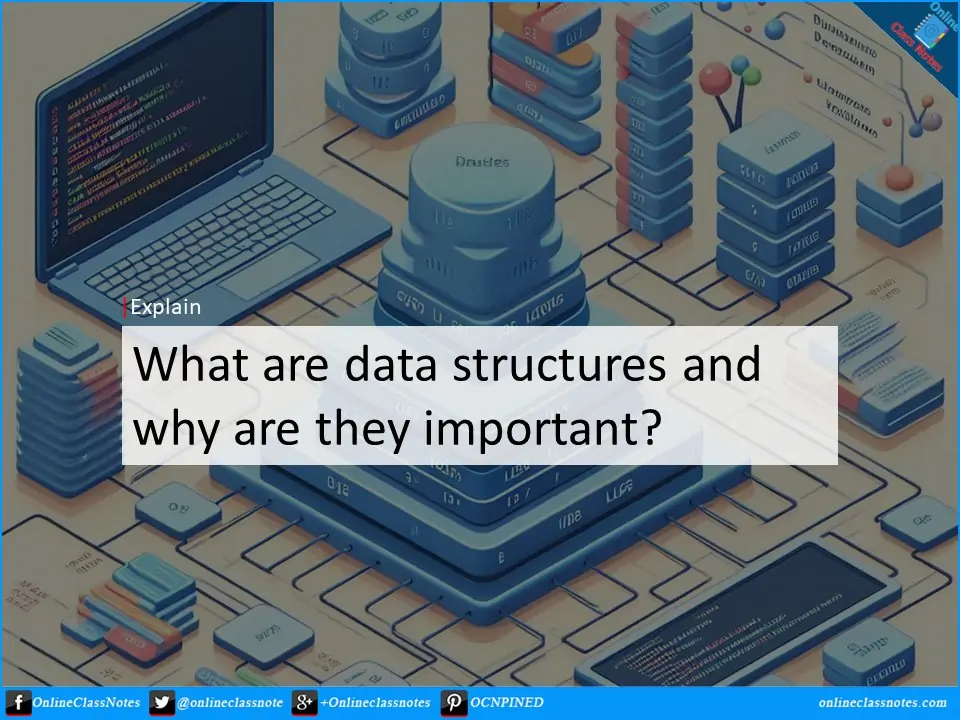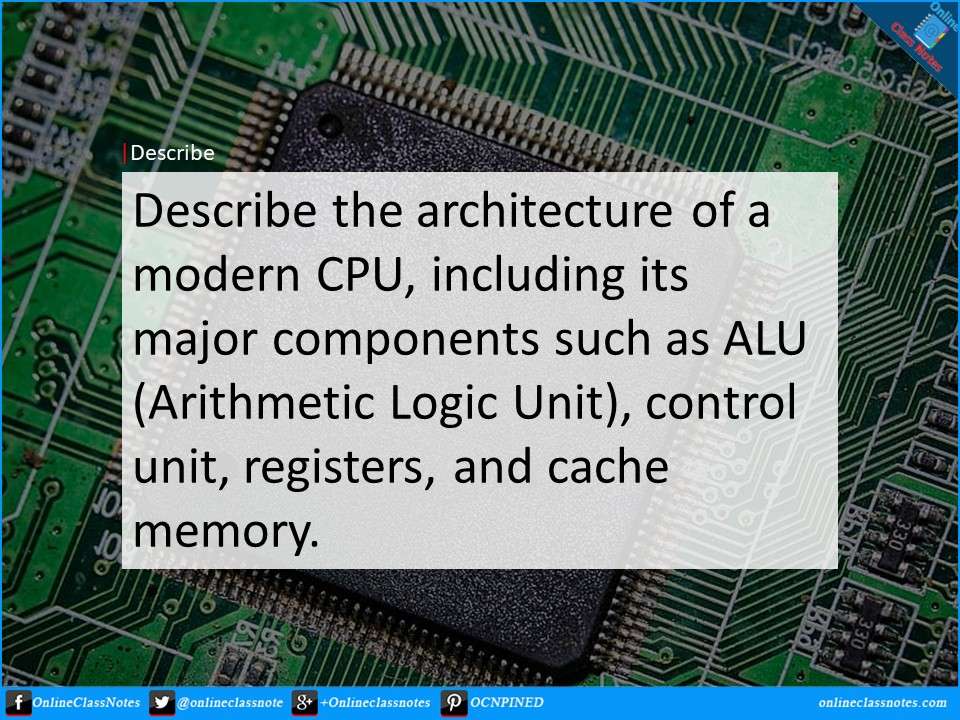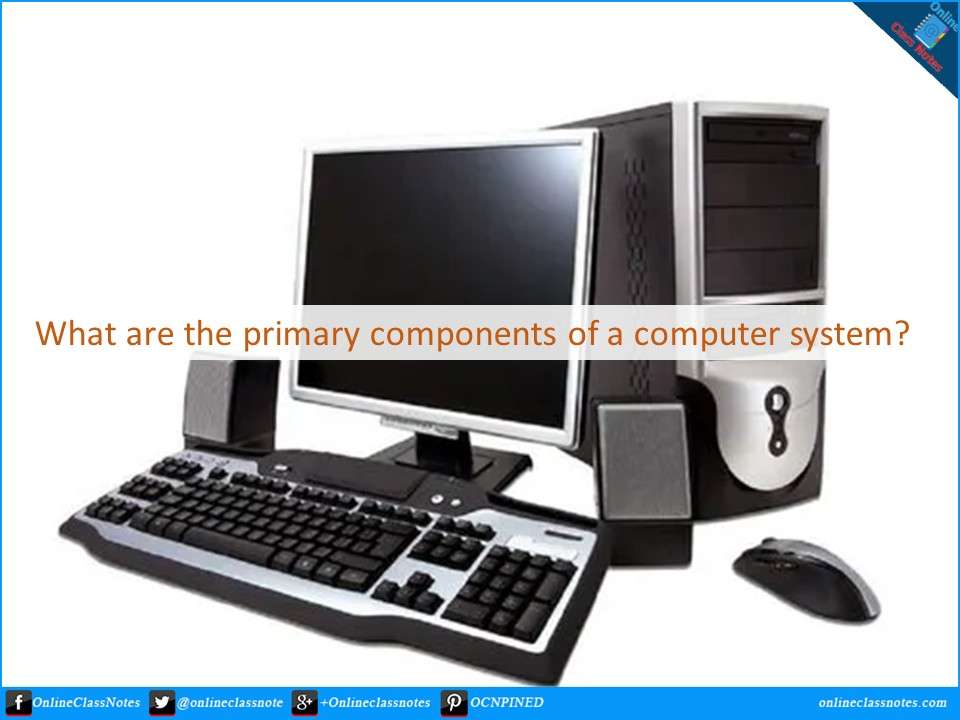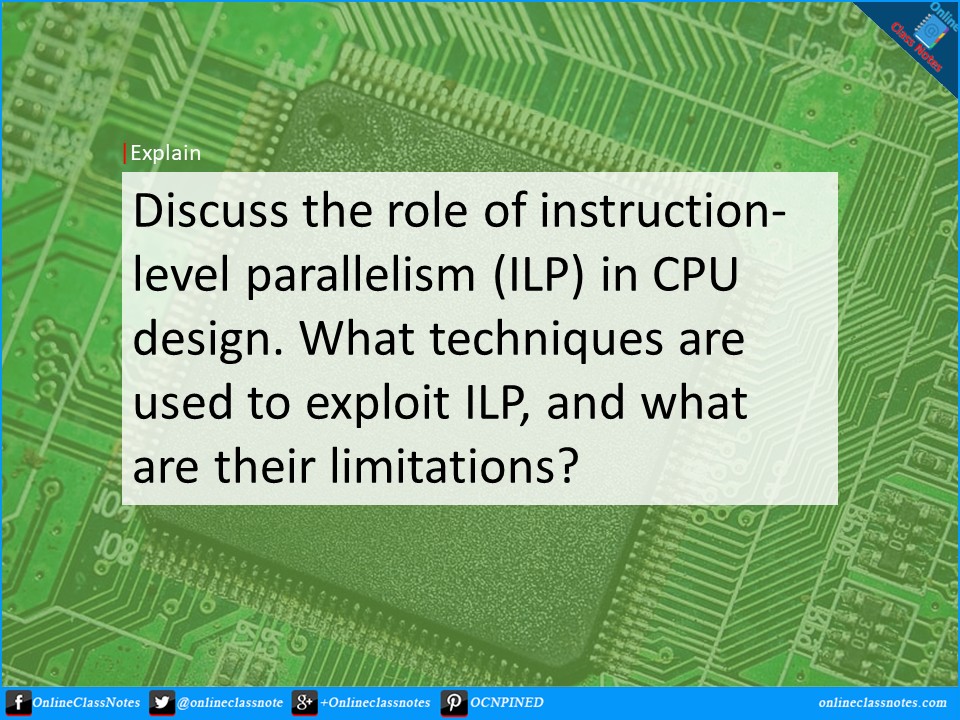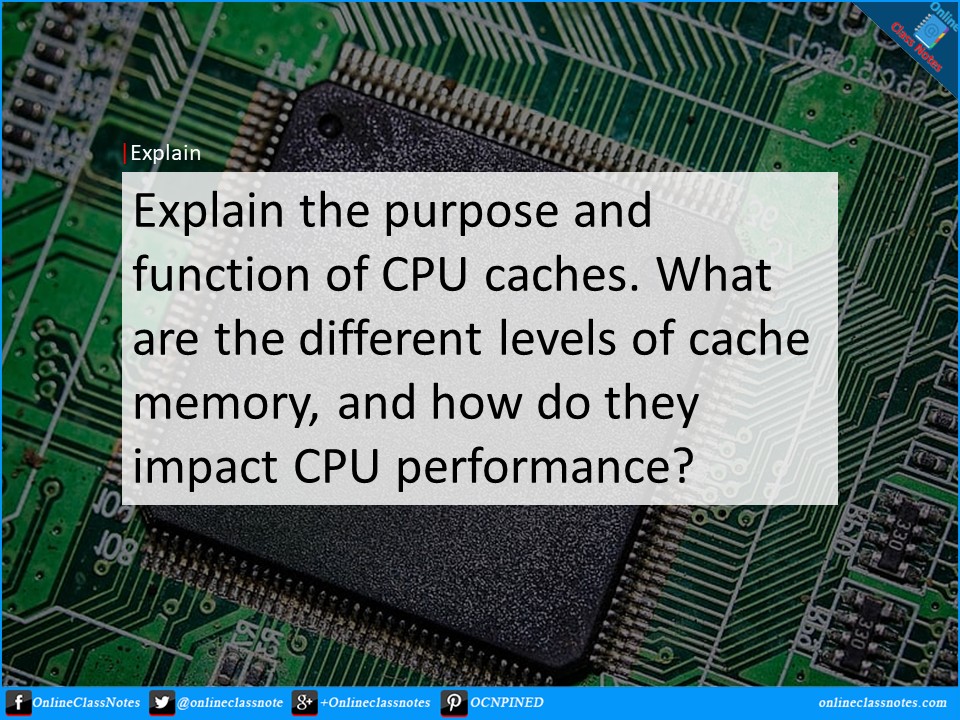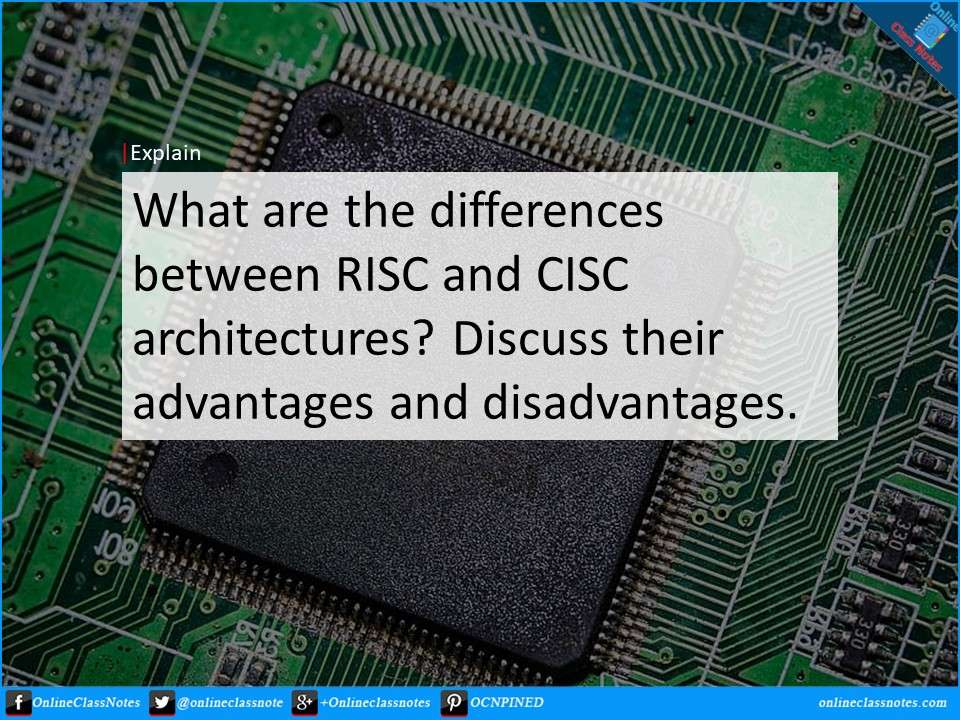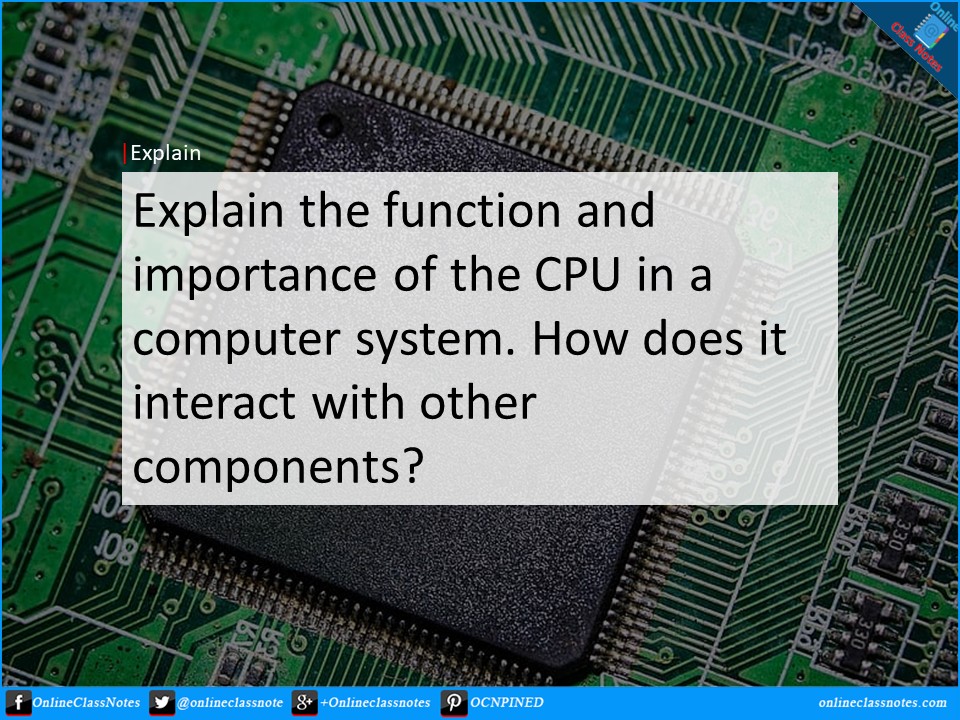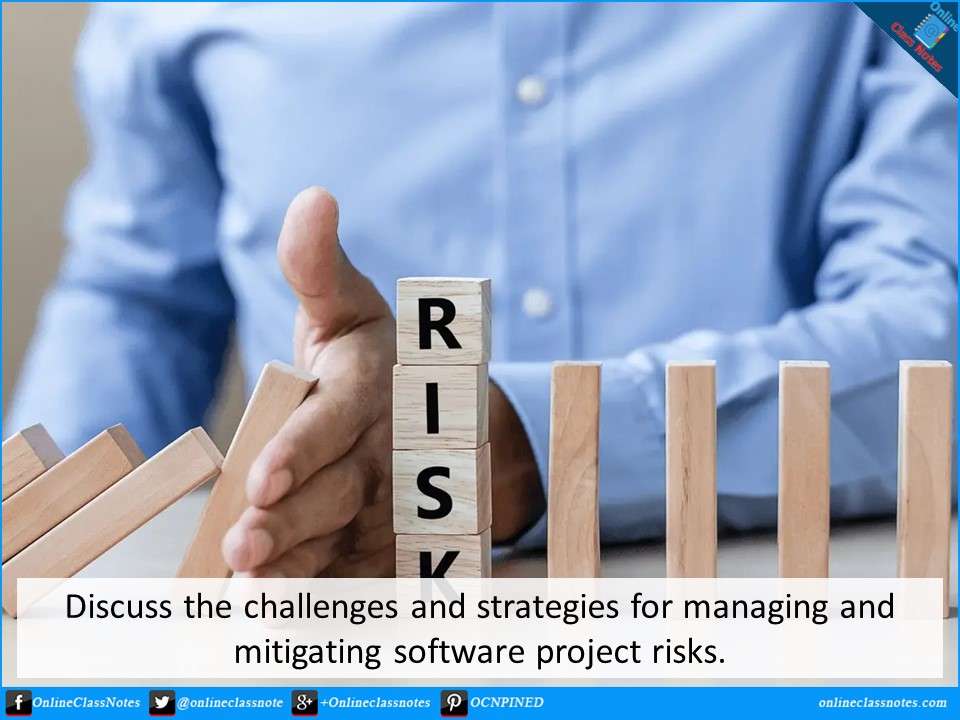Data structures are systematic ways to organize, manage, and store data in order to facilitate efficient access and modification. They define the layout of data, the relationships between different data elements, and the operations that can be performed on the data. Common data structures include arrays, linked lists, stacks, queues, trees, and graphs. Each of these structures offers different advantages and trade-offs depending on the specific requirements of the problem being addressed.
Notes
Explain the concept of parallelism in CPUs. What are the different types of parallelism, and how do they affect CPU performance?
Parallelism in CPUs refers to the ability of a processor to perform multiple tasks simultaneously, thereby increasing throughput and overall performance. Parallelism can be achieved at different levels within a CPU, from the execution of individual instructions to the concurrent execution of multiple threads or processes.
How does pipelining improve CPU performance? What are the stages of the pipeline, and what challenges may arise in implementing pipelining?
Pipelining is a technique used in CPU design to improve performance by overlapping the execution of multiple instructions. It allows the CPU to process several instructions simultaneously, thereby increasing throughput and overall efficiency.
Describe the architecture of a modern CPU, including its major components such as ALU (Arithmetic Logic Unit), control unit, registers, and cache memory.
The architecture of a modern CPU (Central Processing Unit) is designed to efficiently execute instructions and process data.
What are the primary components of a computer system?
A computer system is composed of several key components that work together to process and manage data. These components can be broadly categorized into hardware and software, with hardware referring to the physical parts of the computer and software referring to the programs that run on the hardware. Here are the primary components:
Discuss the role of instruction-level parallelism (ILP) in CPU design. What techniques are used to exploit ILP, and what are their limitations?
Instruction-Level Parallelism (ILP) is a crucial concept in CPU design aimed at improving performance by executing multiple instructions simultaneously or overlapping their execution. ILP allows CPUs to exploit available instruction-level parallelism within a program to increase throughput and reduce execution time.
Explain the purpose and function of CPU caches. What are the different levels of cache memory, and how do they impact CPU performance?
CPU caches serve as high-speed storage units that store frequently accessed data and instructions to reduce the latency of memory access and improve overall CPU performance. Caches are designed to exploit the principle of locality, which states that programs tend to access a relatively small subset of data and instructions repeatedly within a short period of time. By storing this frequently accessed data and instructions in caches, CPUs can minimize the time spent waiting for data to be fetched from slower main memory.
What are the differences between RISC (Reduced Instruction Set Computing) and CISC (Complex Instruction Set Computing) architectures? Discuss their advantages and disadvantages.
RISC (Reduced Instruction Set Computing) and CISC (Complex Instruction Set Computing) architectures are two distinct approaches to CPU design, each with its own characteristics, advantages, and disadvantages.
Explain the function and importance of the CPU in a computer system. How does it interact with other components?
The CPU (Central Processing Unit) acts as the computer’s brain, managing instruction execution and conducting essential calculations for system functionality. It coordinates data processing, executes programs, and interacts with other components to ensure seamless operation.
Discuss the challenges and strategies for managing and mitigating software project risks.
Software Project Risk
In software engineering, a project risk refers to any factor or event that has the potential to adversely impact the successful completion of a software project. These risks can take various forms, including technical challenges, changing requirements, resource limitations, unexpected delays, budget constraints, and external factors like market shifts or regulatory changes. Each risk carries a level of uncertainty and the potential to disrupt project objectives, leading to issues such as missed deadlines, cost overruns, compromised quality, and, in some cases, project failure. Effective risk management in software projects involves identifying, analyzing, and proactively mitigating these risks to minimize their negative consequences and increase the likelihood of a successful project outcome.
